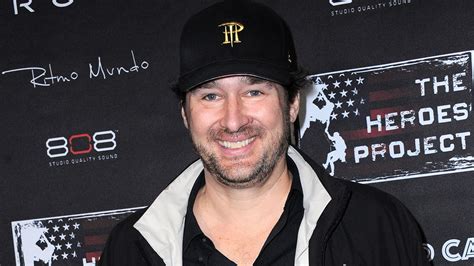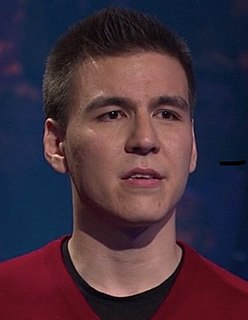A Quote by James Altucher
Poker is a charismatic game. People who are larger than life play poker and make their living from playing games and hustling.
Quote Topics
Related Quotes
I like to peruse the Full Contact Poker online forums to read and comment on posts about interesting poker hands and whether they were played properly. I find that many of the contributors consistently suffer from the same problem: they are far too preoccupied with statistically insignificant aspects of a poker hand.





























